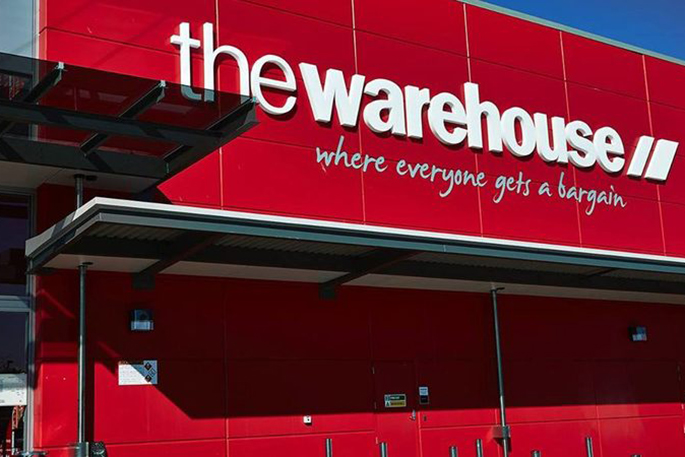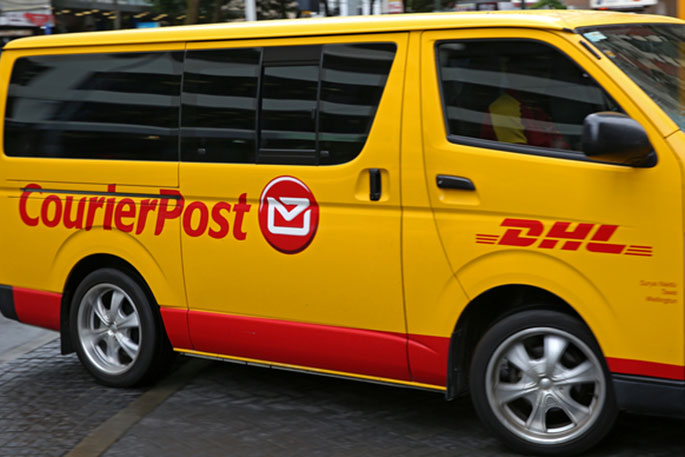Shampoo in one parcel, socks in another - for many of us, it's become normal to hear several knocks on the door from a courier during a week.
But all this to-ing and fro-ing has an impact on the climate, and that's something delivery companies are having to address.
Despite a rash of press releases about companies buying electric vans, most parcels still travel the country on fossil-fuelled vehicles, according to Rob Levy of Freightways, which owns NZ Couriers.
Electric vans do not quite have the range or power needed for bigger loads, though he expects that to change in the next few years.
"Sadly at the moment, the big factor is the fossil fuels," he says.
Mark Anderton of retailer The Warehouse says the red sheds have been trialling electric vans for whiteware and other deliveries from Auckland, Hamilton and Tauranga, with similar challenges.
The company is committed to fully electrifying its vans (and has already converted its light fleet) but, like NZ Couriers, is waiting for better charging infrastructure and heavier load capacity.
 The Warehouse is trialling electric vans. Photo: Supplied
The Warehouse is trialling electric vans. Photo: Supplied
NZ Couriers has started offering its business customers the option to track the greenhouse gases of deliveries, and Rob says 100 companies from all kinds of industries have taken up the offer.
In the current, mainly fossil-fuelled environment, he says two main factors drive a parcel's planet-heating impact: whether or not it travels by plane, which results in higher emissions, and how many items can be bunched together for the bulk of their journey.
A New Zealand report on decarbonising freight found customers often were not aware of the carbon cost of demanding things quickly, and often were not being charged the full cost of doing so.
Antonia Burbidge from the Sustainable Business Council says businesses were competing in a market that treats speedy deliveries as the norm.
"I'm not sure how conscious that is," she says, adding that people may not be thinking through whether they really need something tomorrow, versus in a few days, versus two weeks from now.
She says, for parcels that can wait, switching cargo from air freight to coastal shipping would be slower, but cheaper and better for the planet.
Her organisation is working on how to make shipping and rail feasible for a bigger proportion of journeys that might otherwise use roads or air.
Some cleaner options are the same speed as fossil-fuelled ones, such as moving trucks from diesel to electric or other fuels, she says.
And for those short city journeys, Antonia says electric vehicles were readily available now.
That is important, because research for the European Commission found the 'last mile' of travel to your house is where most climate pollution happens. It is worse if you are not home, and the parcel has to be redelivered.
Rob says people can reduce the amount of fossil fuels burned by 'bunching up' into single orders, rather than ordering in dribs and drabs.
But that can be tricky when retailers often send items out in multiple deliveries, even if they were ordered at the same time.
Would The Warehouse would consider giving people a click-button option to wait a bit longer and have an order arrive all at once?
Mark does not think it would work.
He says the solution was more about making sure one store has the right stock to fill a person's whole order, rather than having to send items from multiple locations.
He says The Warehouse has used this tactic to cut the number of parcels per order by 25 per cent.
The reality is that customers valued speed, he says, in addition to other factors.



6 comments
So show us your evidence ?
Posted on 23-01-2024 12:05 | By an_alias
I mean you have only speculated but have shown nothing ?
Would it have been better for ONE vehicle to do the travels or 200 for each item ?
EU commission, so we are taking advice from an un-elected bunch who can't even run there local economies.
elecric van slow uptake
Posted on 23-01-2024 14:52 | By antonio
re the comment "electric vans do not quiet have the range or power.They actually do , for some reason we still see petol and diesel van out delivering parsels all over Tauranga and the Mount.Usually Courier Post.There usually toyotas.Well they dont do electric vans .I think the drivers are to afraid to try a mercedes or ldv van or even peugoet.I love to hear from a courier the reasons for this.
The Master
Posted on 23-01-2024 16:33 | By Ian Stevenson
@ an_alias = they have no "evidence". In fact the last thing they will ever do is provide real science, data, facts or evidence that is because it contradicts their own, desired narrative extolled as above.
The Master
Posted on 23-01-2024 16:37 | By Ian Stevenson
There are estimated to be 8-10 million people employed to do home deliveries in China, that's just for food alone.... anything ordered online 24/7
Why...........
Posted on 23-01-2024 21:25 | By groutby
......do we continually look for people with such backward and non efficient comments and actually expect anyone to give a rats a** about dissing organisations who are doing their best to keep this broken country moving and 'stuff' delivered efficiently?..... The time for looking seriously at such changes surely is not right now....yes covid has gone but we have six years of disastrous governance to recover from, how about letting us actually be productive without the constant whining as we try to do this?
Not to mention
Posted on 24-01-2024 22:44 | By Captain Hottie
Don't forget to factor in all the fuel used by the porch pirates when they follow the courier vans around in order to steal the parcels...
Leave a Comment
You must be logged in to make a comment.